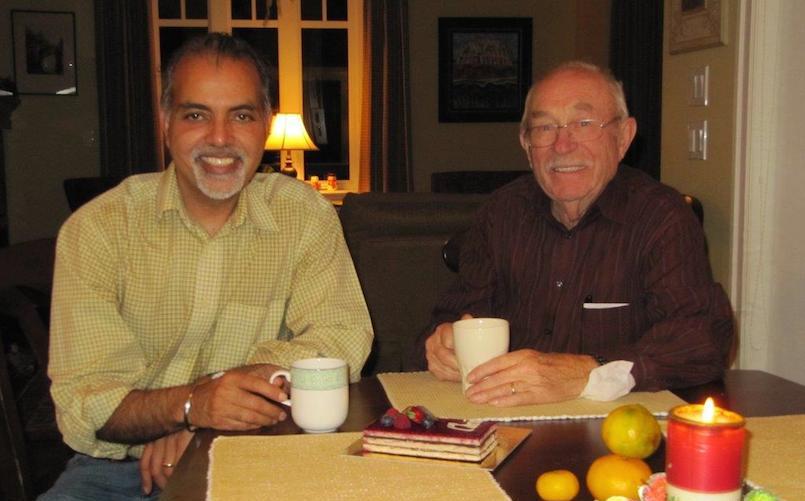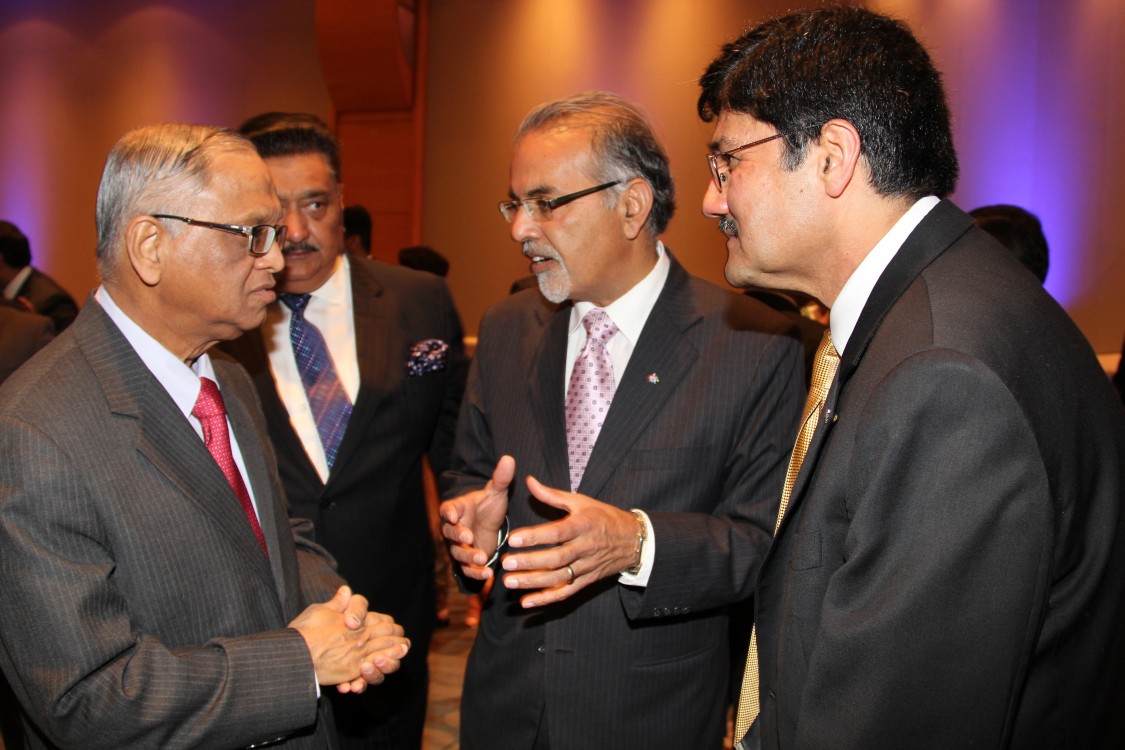
The Dignity of All Work
We often undervalue the contributions of our nation’s workers. Instead, we must value and celebrate the dignity of all honest work.
There is much talk in the media these days about the thousands of jobs in British Columbia and the rest of Canada that will have to be filled by non-Canadians – meaning new immigrants and/or temporary foreign workers. Most of these jobs will require workers with trades skills, technical experience and knowledge. While this may be the case, the tone of the public discourse is, perhaps unintentionally, diminishing the value of the kind of work that many Canadians, new immigrants and temporary foreign workers do.
When their jobs are called “menial,” “grunt,” “low skilled,” or “unskilled,” I believe we are unfairly degrading this kind of work. Our society cannot function without people working in these jobs, and the people that do them deserve to be valued for their contributions to our communities.
In Canada, we don’t only need people working in high tech, “high skilled” jobs. We need people to work in all aspects of a functioning society. Whether it is picking the food that ends up on our kitchen tables, serving coffee, building houses, or growing a business, each person contributes to the development of our communities and our economy in an important way. Each position that a worker takes on will help them to develop the skills they need to progress in their own life and to further advance our economy as a whole. And each position allows a worker to develop important people skills such as communication and teamwork, ensuring more cohesive and harmonious communities.
My father came to Canada in 1960 with no marketable or technical skills. He worked as a labourer in a saw mill, a plywood mill, and in a small metal fabricating shop on the weekends where he painted railings. Eventually he started his own construction company. He became successful in the latter and ended up pioneering one of the first Canada-India partnerships, building a major education and health care centre in India, and forging a relationship with the University of British Columbia in training nurses. This initiative has been beneficial to both Canada and India, and may not have been possible if it weren’t for the skills my father had learned in his earlier roles.
Similarly, my father-in-law, Jacob Loewen, and his family arrived in Canada in 1948 after fleeing their home town of Tiege, Ukraine in 1944, which had been under communist rule. With a grade eight education and a short apprenticeship in carpentry in Germany after the end of World War II, his first job was on a farm in Abbotsford. Later, in 1951, he worked on some construction sites in Kitimat and Burns Lake, and in 1956, he started his own construction company, going on to build over 125 single family homes in Vancouver and multiple commercial buildings over a 25 year period. He worked hard from sunrise to sunset for many years and he loved every minute of it. He even found time to take English literature classes in the evening at John Oliver Secondary School and the Dale Carnegie Course to improve his English and public speaking skills.
My mother-in-law, Hilda (Stobbe) Loewen, whose family also came to Canada after World War II says, “….in Canada we were no longer afraid. We could now work hard and create a better life for ourselves and others.”
I started working when I was 11 years old; I took on all kinds of jobs around Port Alberni where my family had immigrated. My first job was picking potatoes in September with my mother and my youngest sister. I later delivered the Vancouver Sun and Province newspapers, worked in a hardware store, picked strawberries, corn and vegetables on farms, and worked at the plywood mill. In the summer after grade 10, I was working 16 hour days – on a farm seven days a week, and nights at the Alberni Plywood mill.
When we moved to Vancouver South, I began working after school and on weekends at the Terminal Saw Mill and later one summer at the Eburne Saw Mill where the B.C. Transit Station now sits. I worked on the log boom, on the green chain, as a carpenter’s helper, on night fire watch and on cleanup crew. Many evenings and weekends I would also help on my father’s construction sites while at school and university.
Most of these jobs would be classified as “menial and low-skilled.” But at each of those jobs, I learned something new and I brought that knowledge and skill with me to the next job. I learned technical skills as well as people skills, and how to work as part of a team. I learned firsthand the strength and dedication it takes to do manual labour and to work the land, efforts that are essential for thriving communities.
Like my father and my father-in-law, I also gained an understanding about constructing homes and buildings which has been the foundation of my success in business later in life. Without the knowledge gained in earlier roles, the three of us may never have been able to grow our businesses, let alone participate in the various education, healthcare, and community building projects we have been involved in.
When we use words like “menial” and “unskilled”, we undervalue the important and necessary contributions of our nation’s workers. Without these positions, our country would not thrive. We must value all work as an important element to the growth of our society and economy. Maimonides, a preeminent medieval philosopher, once said: “The greatest gift that we can give one another is the gift of work.”
Let us accept this gift with grace and humility. Let us celebrate the dignity of all honest work.

Surrey Board of Trade – 6th International Trades Awards
I had the pleasure of speaking on behalf of SFU’s India Advisory Council at the Surrey Board of Trade -6th International Trades Awards on May 8th, 2014. Below is the speech that I was fortunate to give on this night honouring excellence in Surrey.
I am grateful to Surrey Board of Trade for hosting this evening’s International Trade Awards in recognition of Surrey based companies engaged in international trade. I congratulate all the award nominees. I am pleased to represent Simon Fraser University here this evening as it is an integral part of our community and economy. Over the past few years I have had the distinct honour to serve on Simon Fraser University’s India Advisory Council along with notable community and business leaders including SBOT’s CEO, Anita Huberman. SFU’s India strategy links local community with efforts to build academic, research and business relationships in India. Members of the Advisory Council help open doors and provide advice on local and international engagement.
In 1981 a young man in his mid-thirties had some university education, a little bit of business experience, an innovative idea, a lot of ambition but no start-up capital. With a $200 loan from his wife and six knowledge partners he launched a small technology company. Today, Infosys is a multinational corporation providing business consulting, technology, engineering, and outsourcing services. It employs 165,000 people around the world including Canada. Its founder, Mr. Narayana Murthy has been listed among the 12 greatest entrepreneurs of our time by Fortune magazine. He has been described as the Father of the Indian IT sector by Time magazine!
Simon Fraser University is creatively engaging the minds and hearts of its 30,000 students including nearly 6,000 international students to raise-up innovators and entrepreneurs like Mr. Murthy. SFU’s India strategy was developed in 2006 and it has taken many years of visits and efforts to build our reputation locally and in India. For BC and Canada, India is a priority market. Both have been keen on increasing trade and business linkages with India, with particular focus on infrastructure, energy, food security, education, innovation and entrepreneurship. SFU is playing an important role in this. During the recent trip to India by SFU important letters of intent were signed with Indian Oil, India’s largest commercial enterprise and 88th on the Fortune ‘Global 500’ listings, the top-ranked Indian Institute of Technology – Bombay, and the Bombay Stock Exchange Institute.
SFU has benefited from participating in the mission organized by the City of Surrey, provincial visits to India, and the support of the BC Ministry of International Trade. At the state dinner for His Excellency Governor General David Johnston in New Delhi in February, I had the privilege to sit beside and chat with Mr. Butala, Chairman of Indian Oil. Canada is seen as an energy powerhouse by India. Indian Oil recognizes British Columbia and Simon Fraser University for their global leadership role in the fuel cell development and its commercialization. Thus the exciting research collaboration between Indian Oil and SFU will provide greater opportunities for SFU faculty members and students to advance this field globally and to help meet rising demand for energy in India and around the world.
SFU’s partnership with Ryerson University and the Bombay Stock Exchange Institute is an innovative collaboration to develop an international incubator and accelerator program for young Canadian and Indian entrepreneurs. The incubator, which I visited along with Governor General David Johnston and his official Canadian delegation in February, will enable start-ups to connect with mentors, customers and investors. It will provide internships, co-op opportunities and support for student entrepreneurs and their start-up and spinout companies. It will develop and situate their business ideas/innovations for the Indian marketplace. This agreement will help Surrey and BC start-up companies that want to develop the Indian market for their products and services and Indian companies that want to develop the North American market. It is expected that these two visionary initiatives will provide Surrey’s business community and young Canadian entrepreneurs an opportunity to explore and engage in significant and meaningful bilateral business activities with India.
On April 26th in Toronto, in his acceptance speech of Canada India Foundation’s Chanchlani Global Indian Award, Mr. Murthy stressed that there was a need to build a world where more and more wealth is created while human dignity is enhanced. He said the need of the hour is to practice compassionate capitalism – bringing the power of ideas and research together in finding innovative solutions for the benefit of the larger masses. It is said “Time and tide wait for no man.” The trade opportunities for you with Asia and India in particular are enormous. All you need is to seize the opportunity! SFU is there to do its part!

Mr. Narayana Murthy, Jay Minhas, Barj Dhahan and Dr. Nemy Banthia, CEO, IC-IMPACTS Ltd. (Canada India Centre of Excellence, UBC)






